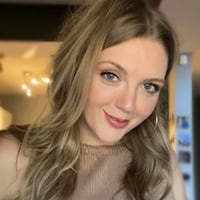Susan Sarandon and Geena Davis reunited Friday for a “Thelma & Louise” charity event at the Greek Theatre in Los Angeles, along with their sidekick: a 1966 Ford Thunderbird turquoise convertible.
Rufus Wainwright, Megan Mullally and Nick Offerman were also at the event.
Before a screening of the film at a drive-in movie theater, Sarandon, Davis and Callie Khouri, the film’s writer, spent the evening discussing behind-the-scenes moments and the impact of the film during a pre-show Q&A.
The pre-show’s moderator, The Hollywood Reporter’s Rebecca Keegan, asked what it was like to film the iconic driving sequences. “It was really fun, especially in the desert,” Sarandon said. “What I learned is that you do your best acting when you’re really just trying to drive a car and you’re not thinking about anything and getting the shots lined up. I was driving pretty fast by the time we finished the movie.”
In the Q&A, Davis recalled how 30 years ago the press had thought that the film was going to pave the way for more female-driven films.
“I’m thinking, hot dog, let’s sit back and wait for all this magic change to happen,” Davis said. “We’re still waiting. It really did not happen. It seems like every five years or so, there’s another movie starring women that’s a huge hit and people say, ‘Well now certainly everything is going to change,’ and it really hasn’t.”
Davis told The Hollywood Reporter that playing Thelma made a lasting impact on her career decisions moving forward. “It made me realize how few opportunities we give women to come out of a movie feeling empowered by the female characters. Men get that every movie they watch.”
“It made me really think about what women in the audience are going to think about my character from now on and led me to want to play parts where I could feel good about the choices the character makes. I turned down parts based on that thinking for sure,” Davis added.
Later in the Q&A, Sarandon discussed the film’s reception at the time, saying, “I completely underestimated that we were backing into territory held by white heterosexual males,” she said. “They got offended and accused us of glorifying murder and suicide and all kinds of things. It didn’t seem like a big deal, it seemed like it was unusual that there would be a woman that you could be friends with in a film. Normally, if there were two women in a film, you automatically hated each other for some reason. … Next thing we knew, all hell broke loose.”
Friday wasn’t the first time the renegade pair had reunited. The two met in January 2020 at the Museum of Modern Art’s Women In Motion screening of the film that won them both Oscar nominations for best actress.
About the Author
Keep Reading
The Latest
Featured


